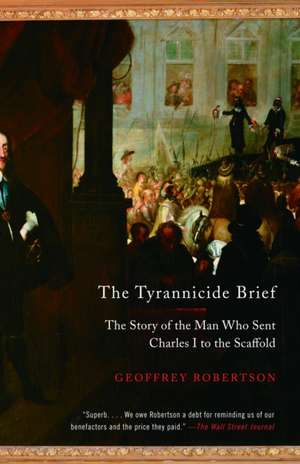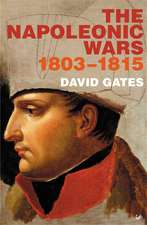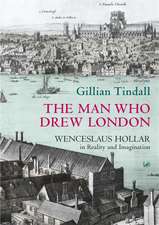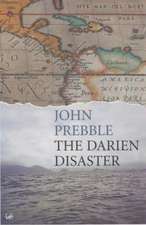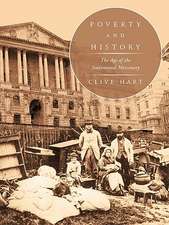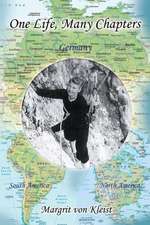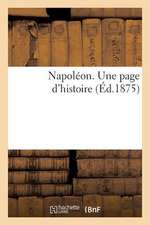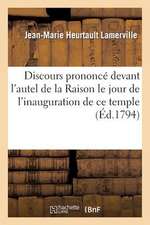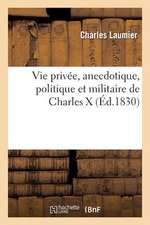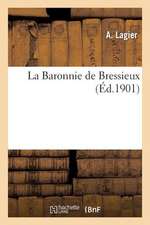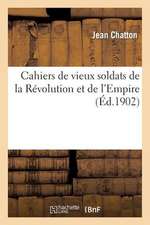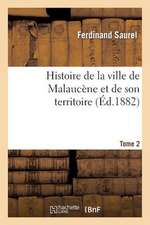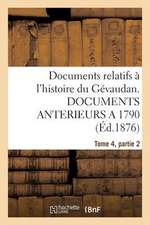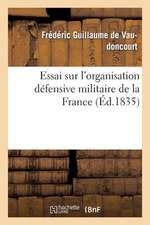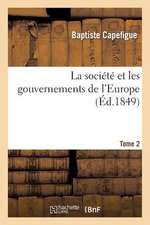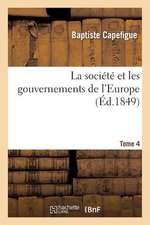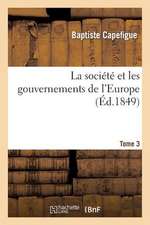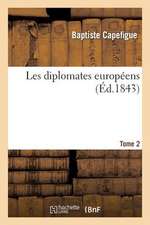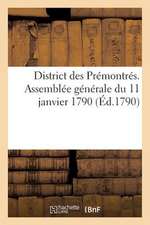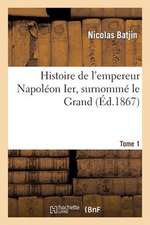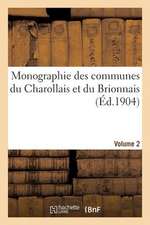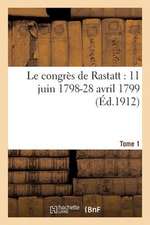The Tyrannicide Brief: The Story of the Man Who Sent Charles I to the Scaffold
Autor Geoffrey Robertsonen Limba Engleză Paperback – 30 sep 2007
Geoffrey Robertson, a renowned human rights lawyer, provides a vivid new reading of the tumultuous Civil War years, exposing long-hidden truths: that the king was guilty, that his execution was necessary to establish the sovereignty of Parliament, that the regicide trials were rigged and their victims should be seen as national heroes. Cooke’s trial of Charles I, the first trial of a head of state for waging war on his own people, became a forerunner of the trials of Augusto Pinochet, Slobodan Milosevic, and Saddam Hussein. The Tyrannicide Brief is a superb work of history that casts a revelatory light on some of the most important issues of our time.
| Toate formatele și edițiile | Preț | Express |
|---|---|---|
| Paperback (2) | 81.00 lei 22-33 zile | +30.70 lei 6-12 zile |
| Vintage Publishing – 5 oct 2006 | 81.00 lei 22-33 zile | +30.70 lei 6-12 zile |
| Anchor Books – 30 sep 2007 | 126.25 lei 6-8 săpt. |
Preț: 126.25 lei
Nou
Puncte Express: 189
Preț estimativ în valută:
24.16€ • 25.36$ • 20.05£
24.16€ • 25.36$ • 20.05£
Carte tipărită la comandă
Livrare economică 10-24 aprilie
Preluare comenzi: 021 569.72.76
Specificații
ISBN-13: 9780307386373
ISBN-10: 0307386376
Pagini: 429
Ilustrații: 16 PP. B&W
Dimensiuni: 134 x 204 x 24 mm
Greutate: 0.44 kg
Editura: Anchor Books
ISBN-10: 0307386376
Pagini: 429
Ilustrații: 16 PP. B&W
Dimensiuni: 134 x 204 x 24 mm
Greutate: 0.44 kg
Editura: Anchor Books
Notă biografică
GEOFFREY ROBERTSON, a leading human rights lawyer and UN war-crimes judge, has won landmark rulings on civil liberty from the highest courts in Britain, Europe, and the Commonwealth. He was involved in the case against General Pinochet and in the training of judges who tried Saddam Hussein. His book Crimes Against Humanity has been an inspiration for the global justice movement. Robertson, who was born in Australia, now lives in London.
Extras
The first recorded existence of John Cooke is in the register of All Saints church in the village of Husbands Bosworth, just south of Leicester. Here he was baptised on 18 September 1608, an indication that his birth had taken place a few days before. He came from poor but healthy farming stock: his father, Isaac Cooke, was twenty-five, and would live until the age of seventy-four. Isaac was one of twelve children of Abraham Cooke, who would die in 1620 at a similar age. If John could come through his early years, in this period when a third of all infants died before reaching five, he could be expected to live through all the seven ages of man predicted by Shakespeare, at this time writing his final plays for the London theatre. His family were God-fearing farmers, with allotments that dotted the countryside for twenty miles to the town of Burbage. Husbands Bosworth was named for all its husbandmen – tenant farmers whose smallholdings sustained their families but little else – and that would have been his parents’ expectation for baby John. What mattered most to Isaac and Elizabeth was that he would live an abstemious and pious life, his ability to do so being regarded as an outward sign that he was one of the ‘elect’ predestined for paradise when the Son of God returned to claim the earth.
This mattered so much to these Puritan parents that for the baptism of their first-born they had travelled from their own farm, just outside Burbage, where the rector was a well-connected Anglican who obeyed the bishop, to Elizabeth’s austere family church. Its minister was willing to dispense with ‘impure’ rituals, like motioning the sign of the cross over the head of the baptised infant. That such a tiny gesture could become a major bone of contention between the bishops of the Church of England, who were sticklers for rituals and symbols, and those Puritan worshippers who wished to ‘purify’ the Church of all such distractions, was typical of the internecine squabbling that had rent the Anglican religion. Puritans like the Cookes were thick on the ground in the Midlands and the eastern counties and many local ministers were sympathetic to their preference for deritualised worship, which was anathema to King James and his bishops.
James I had been invited from Scotland (where he ruled as James VI) to take the English throne on Elizabeth I’s death in 1603. The optimism among Puritans in England that a man from the austere Calvinist Kirk would look sympathetically on their similar form of worship had soon been dashed: James was obsessed with his God-given right to rule as an absolute prince, through a hierarchy supported by archbishops and bishops, alongside his councillors and favourite courtiers. From the outset of his reign he urged the Anglican authorities to discipline ministers who refused to follow approved rituals or who spoke on politics from the pulpit. James I was very far from being ‘the wisest fool in Christendom’: he was highly educated and very canny, and he knew exactly where the Puritans’ hostility to hierarchy in their church would lead: ‘no Bishop, no King’.
James warned his son to ‘hate no man more than a proud Puritan’. He did not persecute them, but encouraged the Church to discriminate against them and to sack their ministers. The King’s edicts, on matters of Sunday observance in particular, were often at variance with the strict moral code of these godly communities, and the profligacy and debauchery of his court further outraged them. As John Cooke grew up, there was much prurient gossip amongst the faithful about a monarch who claimed divine authority yet who maintained a luxurious and licentious court, financed by selling titles and monopolies, and who boasted that his favourite pastimes were ‘hunting witches, prophets, Puritans, dead cats and hares’. After all, James had a grotesque parentage: his mother was Mary, Queen of Scots. He was in her swollen belly when it was clutched at by her lover, David Riccio, as he was being dragged to his death at Holyrood House by a team of assassins led by James’s father, Henry Stuart. Mary had later arranged for Henry to be strangled and had eventually been executed for plotting to kill her cousin and sister-queen Elizabeth I. If there was anything in the theory of hereditary right by which James acceded to the throne, it did not bode well for the Stuarts.
The farming community where the Cookes lived was small – there were only seventy families at Burbage (then named Burbach) and a handful in their hamlet of Sketchley. The town’s name – a construct from ‘burr’ (a kind of thistle) and ‘bach’ (a rivulet) – indicates the kind of countryside in which he played as a boy, although play was not encouraged by Puritans: they had been outraged when James issued a ‘Book of Sports’, permitting certain recreations after church on Sundays. As a young man, Cooke was well aware that the brand of religion on which he was raised was not in government favour. At school, where he excelled, he belonged to a group of Puritan children ostracised in the playground just as their parents were often excluded from worship in the church. There was one faith that suffered worse discrimination: the stateliest house in the area, Bosworth Hall, was owned by a Catholic family related to Sir Thomas More, and their secret celebration of Mass was the cause of occasional raids authorised by the local Justices of the Peace. Especially after the Gunpowder Plot of 1605, Catholics were regarded as potential terrorists, but the strength of their faith intrigued the boy, and would later tempt him to explore it before settling on his own. He spent long hours learning the Bible (the King James edition was printed in 1611, and widely distributed) and was brought up to believe that powerful men who had failed God’s election were abandoned to sin – a belief readily corroborated by reports of corrupt behaviour at court.
James, more homoerotically fixated as he became older, elevated his young male favourites (first Robert Carr, then George Villiers) to titles and positions of power entirely beyond their abilities. Scandalous rumours were rife throughout Cooke’s youth, confirmed by trials in 1616 which gripped the nation. The Countess of Essex, married to Robert Carr whom the King had made Earl of Somerset, arranged for Sir Thomas Overbury to be murdered, by having arsenic put in his food and then, when that failed, by administration of an enema filled with poison. Various of the poisoners were convicted and hanged, but not the earl or the courtiers who had procured the murder, who were pardoned because of their status. Puritans got the message: although their birth might be low on the social scale, in death God would raise them far above kings and courtiers. Another message – that there was no justice to be had in the King’s courts, at least in cases concerning the King and his favourites – would soon concern a new generation of lawyers for whom the common law of England, rooted in Magna Carta, brooked no such exceptions.
Another telling event of Cooke’s youth was the execution in 1618 of Sir Walter Ralegh, that great Renaissance Englishman – historian, explorer, poet, philosopher, intellectual and adventurer. He had been convicted in 1603 on trumped-up charges of plotting with Spanish interests to overthrow the newly crowned King James. His treason trial had been notable for the invective of the prosecutor, the ambitious Attorney-General Edward Coke:
Coke: You are the most vile and execrable traitor that ever lived.
Ralegh: You speak indiscreetly, uncivilly and barbarously.
Coke: I want words sufficient to express your viperous treasons.
Ralegh: I think you want words indeed, for you have spoken one thing half a dozen times.
Coke: You are an odious fellow; your name is hateful to all the realm of England . . . I will make it appear to the world that there never lived a viler viper on the face of the earth than you.
This abuse of the defendant was what passed for cross-examination in treason trials, after which jurors who had been hand-picked by the King’s officials were expected to convict. This time, unusually, Coke’s venom backfired: Ralegh’s dignity earned him such popular support that James, cautious at the outset of his reign, felt it politic to suspend his death sentence. Sir Walter lived in modest comfort in the Tower of London, in rooms that can still be viewed, and was released in 1616 to mount an expedition in search of Spanish gold. It was unsuccessful, but it rekindled Spain’s hatred of the man who had sunk so many of its galleons and had razed Cadiz. His execution was demanded as a condition of fulfilling James’s pet project of marriage between his own heir (Charles) and the Spanish princess. James could hardly put Ralegh on public trial for attacking England’s traditional enemy: instead, he ordered his Chancellor, the brilliant but bent Francis Bacon, to arrange to have the 1603 death sentence put into effect. Ralegh went to his long-delayed execution with memorable dignity, after a scaffold speech which persuaded everyone of his innocence and which convinced two of the onlookers – the MPs John Eliot and John Pym – that the Stuarts could not be trusted to govern the country. James was depraved, unpopular and idle: now he had killed an English hero at the request of Spain. There remained a general belief that he had been appointed by God, but by the end of his reign it had occurred to many MPs to examine more closely the terms of that divine appointment.
James had only one male heir, the small (5 feet 4 inches), stammering and petulant Charles, born in 1600. He was made Prince of Wales in 1616, after the death of Henry, his more popular elder brother. While John Cooke spent his boyhood in the bosom of a loving family circle, Charles had to endure long periods of separation from his mother, at the insistence of an unloving father who had him indoctrinated with the Divine Right of the Stuarts to rule and to be obeyed. James had set down these precepts in a small volume, Basilikon Doron, a handbook for the Divine Right monarch. From it, Charles was made to believe that his God-given authority over his people was like that of a father over his children. James preached the benefits of what would now be described as a benign political and spiritual dictatorship, in which the King governed through an elite, chosen and discarded at his own discretion, comprising his ministers, his bishops and judges, who must never question the royal prerogative, for ‘that is to take away the mystical reverence that belongs to those that sit in the throne of God’. In this Stuart utopia, Parliament was irritating and irrelevant and alternative religions were positively dangerous. James had written another book to refute the claim – by Geneva Calvinists – that monarchy entailed a contract with the people, who might resist and remove a king if he breached it. On the contrary, the monarch is ‘the absolute master of the lives and possessions of his subjects; his acts are not open to inquiry or dispute, and no misdeeds can ever justify resistance’. It was an argument that Shakespeare, in context ironically, put thus in Pericles:
Kings are earth’s gods; in vice their law’s their will,
And if Jove stray, who dares say, Jove doth ill?
One Englishman who dared to quarrel with the King over whether God gave him power to override the common law was Sir Edward Coke. He had been appointed Chief Justice after his crown-pleasing (if not crowd-pleasing) prosecution of Ralegh. His legendary confrontation with James at a Privy Council meeting in 1608 arose when the King claimed that since he was divinely ordained and thus the supreme judge on earth, he could override the decisions of any of the other judges, all of whom he had appointed and could dismiss at will. Judges might (as Bacon had said) be ‘lions under the throne’, but they were under it, and tethered. The Chief Justice disagreed: God’s prodigy the King might be, but he was bound to obey the common law: ‘The law is the golden metewand and measure to try the causes of your majesty’s subjects, and it is by that law that your majesty is protected in safety and peace.’ At this, James flew into a rage, screaming that it was treason to say that he was under the law. The King lurched forward to punch Coke, but the Chief Justice prostrated himself and begged for mercy. It had been a courageous moment and Coke’s short-lived defiance reverberates today, but at the time had little support. James I’s subjects believed that the King’s authority was bestowed by God, a belief endorsed by all his other judges. Monarchical government was ordained by God and resistance to the King’s power was both mortal sin and treason.
James’s assertion that the King could do no wrong would never be tested during his reign. Judges were not minded to assert any power over him, even if (as Coke contended) they had it, because they lacked tenure of their office and could always be sacked if they displeased him. Coke himself was dismissed from the Chief Justiceship for that very reason in 1616: he had infuriated James once again, this time by refusing to concede that the King was entitled to summon the judges for a private ‘consultation’ about a case to which the King was a party. But Coke, despite his intellectual courage, was as corrupt as all other gifted commoners when it came to advancing his career or his wealth. He sought to worm his way back into royal favour by forcing his fourteen-year-old daughter to marry the Duke of Buckingham’s idiot brother, tying her to a bedpost and whipping her until she gave a sobbing consent, and battling, on the streets and in court, with his wife who opposed the match. Challenging the absolutist claim of royal power would require a different breed of men, with a faith firm enough to transcend trivial temptations of earthly wealth or privilege. Disappointed, Coke became a baleful anti-Stuart presence in Parliament, and wrote his justly famous Institutes, a textbook which taught John Cooke’s generation of law students to revere Magna Carta as the source of English liberty and that kings, for all their ‘natural reason’, could not be accepted as interpreters of the common law, since they lacked training in ‘the artificial reason and judgment’ by which the laws of the realm of England were to be understood and applied. Coke’s point – that ‘law is an art which requires long study and experience, before a man can attain to the cognizance of it’ – was not just a denial of the theory of the monarch-judge, but a claim to a professional monopoly. The prospect was congenial to students slaving over tedious texts and precedents for the seven long years of study at the Inns of Court.
From the Hardcover edition.
This mattered so much to these Puritan parents that for the baptism of their first-born they had travelled from their own farm, just outside Burbage, where the rector was a well-connected Anglican who obeyed the bishop, to Elizabeth’s austere family church. Its minister was willing to dispense with ‘impure’ rituals, like motioning the sign of the cross over the head of the baptised infant. That such a tiny gesture could become a major bone of contention between the bishops of the Church of England, who were sticklers for rituals and symbols, and those Puritan worshippers who wished to ‘purify’ the Church of all such distractions, was typical of the internecine squabbling that had rent the Anglican religion. Puritans like the Cookes were thick on the ground in the Midlands and the eastern counties and many local ministers were sympathetic to their preference for deritualised worship, which was anathema to King James and his bishops.
James I had been invited from Scotland (where he ruled as James VI) to take the English throne on Elizabeth I’s death in 1603. The optimism among Puritans in England that a man from the austere Calvinist Kirk would look sympathetically on their similar form of worship had soon been dashed: James was obsessed with his God-given right to rule as an absolute prince, through a hierarchy supported by archbishops and bishops, alongside his councillors and favourite courtiers. From the outset of his reign he urged the Anglican authorities to discipline ministers who refused to follow approved rituals or who spoke on politics from the pulpit. James I was very far from being ‘the wisest fool in Christendom’: he was highly educated and very canny, and he knew exactly where the Puritans’ hostility to hierarchy in their church would lead: ‘no Bishop, no King’.
James warned his son to ‘hate no man more than a proud Puritan’. He did not persecute them, but encouraged the Church to discriminate against them and to sack their ministers. The King’s edicts, on matters of Sunday observance in particular, were often at variance with the strict moral code of these godly communities, and the profligacy and debauchery of his court further outraged them. As John Cooke grew up, there was much prurient gossip amongst the faithful about a monarch who claimed divine authority yet who maintained a luxurious and licentious court, financed by selling titles and monopolies, and who boasted that his favourite pastimes were ‘hunting witches, prophets, Puritans, dead cats and hares’. After all, James had a grotesque parentage: his mother was Mary, Queen of Scots. He was in her swollen belly when it was clutched at by her lover, David Riccio, as he was being dragged to his death at Holyrood House by a team of assassins led by James’s father, Henry Stuart. Mary had later arranged for Henry to be strangled and had eventually been executed for plotting to kill her cousin and sister-queen Elizabeth I. If there was anything in the theory of hereditary right by which James acceded to the throne, it did not bode well for the Stuarts.
The farming community where the Cookes lived was small – there were only seventy families at Burbage (then named Burbach) and a handful in their hamlet of Sketchley. The town’s name – a construct from ‘burr’ (a kind of thistle) and ‘bach’ (a rivulet) – indicates the kind of countryside in which he played as a boy, although play was not encouraged by Puritans: they had been outraged when James issued a ‘Book of Sports’, permitting certain recreations after church on Sundays. As a young man, Cooke was well aware that the brand of religion on which he was raised was not in government favour. At school, where he excelled, he belonged to a group of Puritan children ostracised in the playground just as their parents were often excluded from worship in the church. There was one faith that suffered worse discrimination: the stateliest house in the area, Bosworth Hall, was owned by a Catholic family related to Sir Thomas More, and their secret celebration of Mass was the cause of occasional raids authorised by the local Justices of the Peace. Especially after the Gunpowder Plot of 1605, Catholics were regarded as potential terrorists, but the strength of their faith intrigued the boy, and would later tempt him to explore it before settling on his own. He spent long hours learning the Bible (the King James edition was printed in 1611, and widely distributed) and was brought up to believe that powerful men who had failed God’s election were abandoned to sin – a belief readily corroborated by reports of corrupt behaviour at court.
James, more homoerotically fixated as he became older, elevated his young male favourites (first Robert Carr, then George Villiers) to titles and positions of power entirely beyond their abilities. Scandalous rumours were rife throughout Cooke’s youth, confirmed by trials in 1616 which gripped the nation. The Countess of Essex, married to Robert Carr whom the King had made Earl of Somerset, arranged for Sir Thomas Overbury to be murdered, by having arsenic put in his food and then, when that failed, by administration of an enema filled with poison. Various of the poisoners were convicted and hanged, but not the earl or the courtiers who had procured the murder, who were pardoned because of their status. Puritans got the message: although their birth might be low on the social scale, in death God would raise them far above kings and courtiers. Another message – that there was no justice to be had in the King’s courts, at least in cases concerning the King and his favourites – would soon concern a new generation of lawyers for whom the common law of England, rooted in Magna Carta, brooked no such exceptions.
Another telling event of Cooke’s youth was the execution in 1618 of Sir Walter Ralegh, that great Renaissance Englishman – historian, explorer, poet, philosopher, intellectual and adventurer. He had been convicted in 1603 on trumped-up charges of plotting with Spanish interests to overthrow the newly crowned King James. His treason trial had been notable for the invective of the prosecutor, the ambitious Attorney-General Edward Coke:
Coke: You are the most vile and execrable traitor that ever lived.
Ralegh: You speak indiscreetly, uncivilly and barbarously.
Coke: I want words sufficient to express your viperous treasons.
Ralegh: I think you want words indeed, for you have spoken one thing half a dozen times.
Coke: You are an odious fellow; your name is hateful to all the realm of England . . . I will make it appear to the world that there never lived a viler viper on the face of the earth than you.
This abuse of the defendant was what passed for cross-examination in treason trials, after which jurors who had been hand-picked by the King’s officials were expected to convict. This time, unusually, Coke’s venom backfired: Ralegh’s dignity earned him such popular support that James, cautious at the outset of his reign, felt it politic to suspend his death sentence. Sir Walter lived in modest comfort in the Tower of London, in rooms that can still be viewed, and was released in 1616 to mount an expedition in search of Spanish gold. It was unsuccessful, but it rekindled Spain’s hatred of the man who had sunk so many of its galleons and had razed Cadiz. His execution was demanded as a condition of fulfilling James’s pet project of marriage between his own heir (Charles) and the Spanish princess. James could hardly put Ralegh on public trial for attacking England’s traditional enemy: instead, he ordered his Chancellor, the brilliant but bent Francis Bacon, to arrange to have the 1603 death sentence put into effect. Ralegh went to his long-delayed execution with memorable dignity, after a scaffold speech which persuaded everyone of his innocence and which convinced two of the onlookers – the MPs John Eliot and John Pym – that the Stuarts could not be trusted to govern the country. James was depraved, unpopular and idle: now he had killed an English hero at the request of Spain. There remained a general belief that he had been appointed by God, but by the end of his reign it had occurred to many MPs to examine more closely the terms of that divine appointment.
James had only one male heir, the small (5 feet 4 inches), stammering and petulant Charles, born in 1600. He was made Prince of Wales in 1616, after the death of Henry, his more popular elder brother. While John Cooke spent his boyhood in the bosom of a loving family circle, Charles had to endure long periods of separation from his mother, at the insistence of an unloving father who had him indoctrinated with the Divine Right of the Stuarts to rule and to be obeyed. James had set down these precepts in a small volume, Basilikon Doron, a handbook for the Divine Right monarch. From it, Charles was made to believe that his God-given authority over his people was like that of a father over his children. James preached the benefits of what would now be described as a benign political and spiritual dictatorship, in which the King governed through an elite, chosen and discarded at his own discretion, comprising his ministers, his bishops and judges, who must never question the royal prerogative, for ‘that is to take away the mystical reverence that belongs to those that sit in the throne of God’. In this Stuart utopia, Parliament was irritating and irrelevant and alternative religions were positively dangerous. James had written another book to refute the claim – by Geneva Calvinists – that monarchy entailed a contract with the people, who might resist and remove a king if he breached it. On the contrary, the monarch is ‘the absolute master of the lives and possessions of his subjects; his acts are not open to inquiry or dispute, and no misdeeds can ever justify resistance’. It was an argument that Shakespeare, in context ironically, put thus in Pericles:
Kings are earth’s gods; in vice their law’s their will,
And if Jove stray, who dares say, Jove doth ill?
One Englishman who dared to quarrel with the King over whether God gave him power to override the common law was Sir Edward Coke. He had been appointed Chief Justice after his crown-pleasing (if not crowd-pleasing) prosecution of Ralegh. His legendary confrontation with James at a Privy Council meeting in 1608 arose when the King claimed that since he was divinely ordained and thus the supreme judge on earth, he could override the decisions of any of the other judges, all of whom he had appointed and could dismiss at will. Judges might (as Bacon had said) be ‘lions under the throne’, but they were under it, and tethered. The Chief Justice disagreed: God’s prodigy the King might be, but he was bound to obey the common law: ‘The law is the golden metewand and measure to try the causes of your majesty’s subjects, and it is by that law that your majesty is protected in safety and peace.’ At this, James flew into a rage, screaming that it was treason to say that he was under the law. The King lurched forward to punch Coke, but the Chief Justice prostrated himself and begged for mercy. It had been a courageous moment and Coke’s short-lived defiance reverberates today, but at the time had little support. James I’s subjects believed that the King’s authority was bestowed by God, a belief endorsed by all his other judges. Monarchical government was ordained by God and resistance to the King’s power was both mortal sin and treason.
James’s assertion that the King could do no wrong would never be tested during his reign. Judges were not minded to assert any power over him, even if (as Coke contended) they had it, because they lacked tenure of their office and could always be sacked if they displeased him. Coke himself was dismissed from the Chief Justiceship for that very reason in 1616: he had infuriated James once again, this time by refusing to concede that the King was entitled to summon the judges for a private ‘consultation’ about a case to which the King was a party. But Coke, despite his intellectual courage, was as corrupt as all other gifted commoners when it came to advancing his career or his wealth. He sought to worm his way back into royal favour by forcing his fourteen-year-old daughter to marry the Duke of Buckingham’s idiot brother, tying her to a bedpost and whipping her until she gave a sobbing consent, and battling, on the streets and in court, with his wife who opposed the match. Challenging the absolutist claim of royal power would require a different breed of men, with a faith firm enough to transcend trivial temptations of earthly wealth or privilege. Disappointed, Coke became a baleful anti-Stuart presence in Parliament, and wrote his justly famous Institutes, a textbook which taught John Cooke’s generation of law students to revere Magna Carta as the source of English liberty and that kings, for all their ‘natural reason’, could not be accepted as interpreters of the common law, since they lacked training in ‘the artificial reason and judgment’ by which the laws of the realm of England were to be understood and applied. Coke’s point – that ‘law is an art which requires long study and experience, before a man can attain to the cognizance of it’ – was not just a denial of the theory of the monarch-judge, but a claim to a professional monopoly. The prospect was congenial to students slaving over tedious texts and precedents for the seven long years of study at the Inns of Court.
From the Hardcover edition.
Recenzii
“Superb. . . . We owe Robertson a debt for reminding us of our benefactors and the price they paid.” —The Wall Street Journal“Fascinating. . . . The best account of these events to date. . . . A very major book, a persuasive reminder of the ongoing need to defend human rights and civil liberties. . . . Historical writing and legal writing at its best.” —Houston Chronicle“Scholarly and gripping. . . . The Tyrannicide Brief is not only a compelling history and legal thriller, but also a telling commentary for today.” —New York Law Journal Magazine
Descriere
Descriere de la o altă ediție sau format:
But in 1649 parliament was hard put to find a lawyer with the skill and daring to prosecute a King who was above the law: in the end the man they briefed was the radical barrister, John Cooke.
But in 1649 parliament was hard put to find a lawyer with the skill and daring to prosecute a King who was above the law: in the end the man they briefed was the radical barrister, John Cooke.
